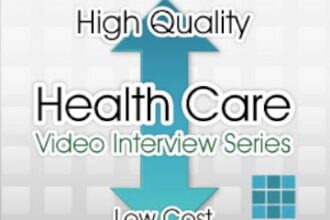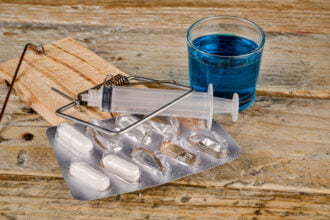I know, yawn, another IT pundit writing about perso
I know, yawn, another IT pundit writing about personal health records (PHRs) and why you should care about them. Let’s face it. Most of you reading this don’t. I too will admit that I’ve been a bit cynical over the years. It’s not like consumers have been flocking to the web in droves to sign on with tech companies or healthcare organizations offering a PHR service of one kind or another. Google got in the market and got out. Microsoft’s HealthVault has been plugging along since 2007, gaining steam but still being actively used by a small percentage of the population. Apple and Samsung are now moving forward with devices that capture health data and their own places to store it. Several electronic medical record/hospital information system vendors provide consumer access to some of the data held in their systems. Healthcare provider organizations like Kaiser and Group Health Cooperative have a pretty good track record for getting patients to use web portals tied to their information systems. But again, it’s not like PHRs are taking over the world, are they?
As a former practicing physician I understand all too well the human condition and the apathy that often surrounds health…that is until a person or someone they love doesn’t have it anymore. Then, at least temporarily, they care a lot about their health. They might even be motivated to change an unhealthy behavior, at least until they feel well again. But chances are after the doctor patches them up and enough time has gone by, they’ll be back to their unhealthy ways. It’s just human nature for most of us.
But what if we could connect to a kind of feedback system that would monitor our health status, and warn us when it detected something was going out of whack? Would you ignore the engine warning light, low tire pressure or low oil pressure indicator in your automobile? Probably not (providing you were confident the sensors were working properly). I suspect you also wouldn’t ignore a warning that you were in immediate danger of having a heart attack or stroke, or that your blood sugar was dangerously high and doing real damage to your nerves and internal organs? And just like mechanics do with your car in a modern service center, wouldn’t it be great if your healthcare providers could connect to your personal health data and get a current and historical view of everything about your health status? That’s the promise of mobile health, wearable/implantable sensors, data analytics, the “internet of things”, and yes, personal health records.
 My heart was lifted a bit today by an article I came across in HealthcareITNews. It reviews the findings of a few, small controlled studies looking at how PHRs improved patient engagement. Specifically, the focus of one study was on 200 patients at Parkview Physicians Group in Fort Wayne, Indiana, who had undergone a cardiac procedure, either a stent or bypass operation. According to one of the researchers there, patients who had access to a PHR were not only more engaged in their care (as measured by a standardized Patient Activation Measure tool) but they also showed improved intermediate outcomes such as LDL cholesterol and hemoglobin A1c.
My heart was lifted a bit today by an article I came across in HealthcareITNews. It reviews the findings of a few, small controlled studies looking at how PHRs improved patient engagement. Specifically, the focus of one study was on 200 patients at Parkview Physicians Group in Fort Wayne, Indiana, who had undergone a cardiac procedure, either a stent or bypass operation. According to one of the researchers there, patients who had access to a PHR were not only more engaged in their care (as measured by a standardized Patient Activation Measure tool) but they also showed improved intermediate outcomes such as LDL cholesterol and hemoglobin A1c.
 In another study with patients who had been fitted with an implantable cardiac device (ICD) such as a pacemaker or defibrillator, researchers also found that patients who had access to data coming from their devices via a PHR were more engaged. They were also overwhelmingly excited and pleased to have access to their data. They found it was reassuring to know that their implantable devices were working properly. By the way, many of these patients were older and from lower socioeconomic groups—not generally people you might think would be comfortable using technology.
In another study with patients who had been fitted with an implantable cardiac device (ICD) such as a pacemaker or defibrillator, researchers also found that patients who had access to data coming from their devices via a PHR were more engaged. They were also overwhelmingly excited and pleased to have access to their data. They found it was reassuring to know that their implantable devices were working properly. By the way, many of these patients were older and from lower socioeconomic groups—not generally people you might think would be comfortable using technology.
These are only small studies, but they do seem to reach a similar conclusion. When health matters to people and you give them access to information, they will not only be more engaged in their care, they will actually welcome and use the information that is being made available to them. All of this has researchers wanting to additional research with more patients.
Note that both of these studies were on patients who had had a serious health event. Like I said at the top of this post, these are patients we expect to be more engaged, at least initially, in matters pertaining to their health. The challenge going forward is how to make health and healthy behaviors important to people long before they get sick. How can we design personal health record and monitoring solutions that people will care about over the entire course of their lifetime? How can we build incentives into these solutions, or make them so compelling that people will actually want to use them even when they are feeling well?









